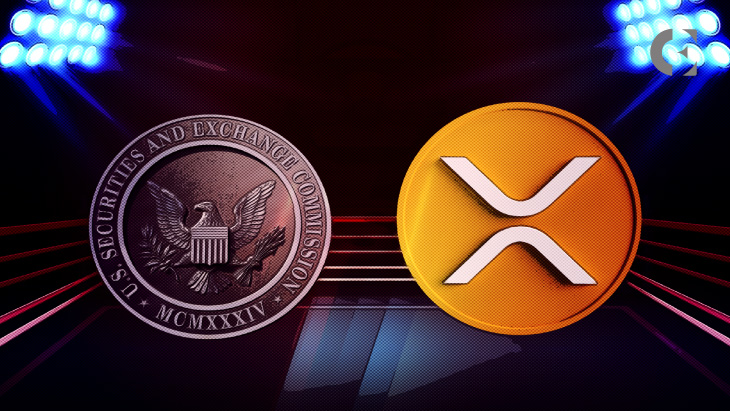- Crypto influencer sheds light on Judge Torres’ perspective regarding the SEC’s argument in the XRP case.
- The SEC’s attempt to compare the XRP case to Terraform and LBRY faced scrutiny from the court.
- The court rejected the SEC’s motion for an interlocutory appeal in its case against Ripple.
Crypto influencer Ashley Prosper highlighted Judge Torres’ opinion of the U.S. Securities and Exchange Commission’s (SEC) argument, which was that there is substantial ground for a difference of opinion. The SEC compared the XRP case to Terraform and LBRY, but the court proved otherwise.
The SEC filed charges against Terraform and its CEO for offering and selling unregistered securities transactions. However, Judge Torres previously ruled that the programmatic sale of XRP wasn’t a violation of securities law.
In the SEC’s appeal to the judge’s ruling, they cited the decision in the SEC vs. Terraform case, in which the judge replied, “There is substantial ground for difference of opinion on whether issuer offers and sales over crypto asset trading platforms can give rise to an investment contract under Howey.”
The court filing mentioned that programmatic buyers were not led to expect profits from the efforts of Ripple, which was not the case in Terraform. Furthermore, the ruling said that its order doesn’t conflict with the Terraform court’s reasoning “given the different procedural postures of the two cases.”
In November 2022, LBRY lost the lawsuit against the SEC for marketing unregistered securities; however, the court claimed that LBRY’s case concerned disputing Howey’s first prong, whereas “here only the third component of the Howey test is in dispute.” The court claimed that they “can’t draw any conclusions about the LBRY court’s reasoning as to an issue that was never litigated.”
Recently, the court rejected the SEC’s motion to file an interlocutory appeal in its case against Ripple (XRP), and Judge Analisa Torres stated that the SEC’s interlocutory appeal failed to provide adequate evidence that the appeal would advance the case. Moreover, the court claimed that the SEC failed to provide evidence that Ripple’s promotional materials were distributed to programmatic buyers.
Disclaimer: The information presented in this article is for informational and educational purposes only. The article does not constitute financial advice or advice of any kind. Coin Edition is not responsible for any losses incurred as a result of the utilization of content, products, or services mentioned. Readers are advised to exercise caution before taking any action related to the company.







